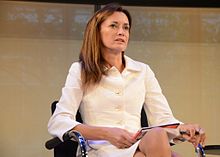
Investment banking pertains to certain activities of a financial services company or a corporate division that engages in providing advisory-based services on financial transactions for clients, such as institutional investors, corporations, and governments. Traditionally associated with corporate finance, such a bank might assist in raising financial capital by underwriting or acting as the client's agent in the issuance of debt or equity securities. An investment bank may also assist companies involved in mergers and acquisitions (M&A) and provide ancillary services such as market making, trading of derivatives and equity securities, FICC services or research. Most investment banks maintain prime brokerage and asset management departments in conjunction with their investment research businesses. As an industry, it is broken up into the Bulge Bracket, Middle Market, and boutique market.

JPMorgan Chase & Co. is an American multinational financial institution headquartered in New York City and incorporated in Delaware. It is the largest bank in the United States and the world's largest bank by market capitalization as of 2023. As the largest of Big Four banks, the firm is considered systemically important by the Financial Stability Board. Its size and scale have often led to enhanced regulatory oversight as well as the maintenance of an internal "Fortress Balance Sheet" of capital reserves. The firm is headquartered at 383 Madison Avenue in Midtown Manhattan and is set to move into the under-construction JPMorgan Chase Building at 270 Park Avenue in 2025.

JPMorgan Chase Bank, N.A., doing business as Chase, is an American national bank headquartered in New York City that constitutes the consumer and commercial banking subsidiary of the U.S. multinational banking and financial services holding company, JPMorgan Chase. The bank was known as Chase Manhattan Bank until it merged with J.P. Morgan & Co. in 2000. Chase Manhattan Bank was formed by the merger of the Chase National Bank and the Manhattan Company in 1955. The bank merged with Chemical Bank New York in 1996 and later merged with Bank One Corporation in 2004 and in 2008 acquired the deposits and most assets of Washington Mutual.

The Bear Stearns Companies, Inc. was an American investment bank, securities trading, and brokerage firm that failed in 2008 as part of the global financial crisis and recession. After its closure it was subsequently sold to JPMorgan Chase. The company's main business areas before its failure were capital markets, investment banking, wealth management, and global clearing services, and it was heavily involved in the subprime mortgage crisis.

Bulge bracket banks are the world's largest multi-national investment banks, serving mostly large corporations, institutional investors and governments. The term "Bulge Bracket" comes from the way investment banks are listed on the "tombstone", or public notification of a financial transaction;, where the largest advisors on investment banking operations are listed first. The term is primarily related to the financial advisory side of the business, as opposed to sales and trading.
J.P. Morgan & Co. is an American financial institution specialized in investment banking, asset management and private banking founded by financier J. P. Morgan in 1871. Through a series of mergers and acquisitions, the company is now a subsidiary of JPMorgan Chase, one of the largest banking institutions in the world. The company has been historically referred to as the "House of Morgan" or simply Morgan. For 146 years, until 2000, J.P. Morgan specialized in commercial banking, before a merger with Chase Manhattan Bank led to the business line spinning off under the Chase brand.

Gillian Romaine Tett is a British author and journalist. She is the chair of the editorial board for the Financial Times, jointly serving as its U.S. editor-at-large. She writes weekly columns, covering a range of economic, financial, political and social issues. Tett co-founded Moral Money, the paper's sustainability newsletter.
James Bainbridge Lee, Jr. was an American investment banker, notable for his role in the development of the leveraged finance markets in the U.S. in the 1980s. He is widely credited as the architect of the modern-day syndicated loan market. At the time of his death, Lee was vice chairman of JPMorgan Chase & Co. and a member of the bank's executive committee. He was also Co-Chairman of JPMorgan's investment bank.
MF Global, formerly known as Man Financial, was a major global financial derivatives broker, or commodities brokerage firm that went bankrupt in 2011. MF Global provided exchange-traded derivatives, such as futures and options as well as over-the-counter products such as contracts for difference (CFDs), foreign exchange and spread betting. MF Global Inc., its broker-dealer subsidiary, was a primary dealer in United States Treasury securities. A series of perceived liquidity problems and large fines and penalties dogged MF Global starting in 2008, and led to its bankruptcy in 2011.

Highbridge Capital Management, LLC is a multi-strategy alternative investment management firm founded by Glenn Dubin and Henry Swieca in 1992. In 2004, it was purchased by JPMorgan Chase; as of 2019, it had about $3.9 billion in assets under management, out of $150 billion in JPMorgan's global alternatives division.
JPMorgan Chase is an American multinational banking corporation with a large presence in the United Kingdom. The corporation's European subsidiaries J.P. Morgan Europe Limited, J.P. Morgan International Bank Limited and J.P. Morgan Securities plc are headquartered in London.
In April and May 2012, large trading losses occurred at JPMorgan's Chief Investment Office, based on transactions booked through its London branch. The unit was run by Chief Investment Officer Ina Drew, who later stepped down. A series of derivative transactions involving credit default swaps (CDS) were entered, reportedly as part of the bank's "hedging" strategy. Trader Bruno Iksil, nicknamed the London Whale, accumulated outsized CDS positions in the market. An estimated trading loss of $2 billion was announced. However, the loss amounted to more than $6 billion for JPMorgan Chase.

Stephanie Ruhle-Hubbard is the host of MSNBC's The 11th Hour with Stephanie Ruhle and the NBC News Senior Business analyst. Previously, Ruhle was managing editor and news anchor for Bloomberg Television and editor-at-large for Bloomberg News. Ruhle co-hosted the Bloomberg Television show Bloomberg GO and was one of three Bloomberg reporters who broke the story identifying the trader behind the 2012 JPMorgan Chase trading loss.

J. Christopher Giancarlo is an American attorney and former business executive who served as 13th chairman of the United States Commodity Futures Trading Commission (CFTC). Giancarlo was sworn in as a CFTC commissioner on June 16, 2014, for a term expiring on April 13, 2019. Starting on January 20, 2017, with President Donald Trump's inauguration, Giancarlo began serving as acting chair of the CFTC. In March 2017, the president nominated Giancarlo to be full-time chair of the commission. Giancarlo was confirmed as chairman of the commission by the United States Senate on August 3, 2017.
William Stanton Demchak is a business executive in the finance industry as the current chief executive officer of PNC Financial Services. He is credited with being one of the earliest adopters of the credit default swap, especially the creation of markets around them, which due to the role they would play in the Financial crisis of 2007–2008 earned him the title "prince of darkness" within the industry.
Digital Asset is a financial technology company founded in 2014 by Sunil Hirani, Don R. Wilson, Yuval Rooz, Shaul Kfir and Eric Saraniecki. It builds products based on distributed ledger technology (DLT) for banks and other financial institutions.
Marianne Lake is a senior British-American banker.
The Chamber of Digital Commerce is an American advocacy group that promotes the emerging industry behind blockchain technology, bitcoin, digital currency and digital assets.

Brian P. Brooks is an American lawyer, banker, entrepreneur, technologist, and former government official. He served as Acting Comptroller of the Currency from May 29, 2020, succeeding the 31st Comptroller of the Currency Joseph Otting, until January 14, 2021. Brooks was nominated twice by President Donald Trump for a five-year term as Comptroller of the Currency, once during the 116th Congress, and once in the 117th Congress.










